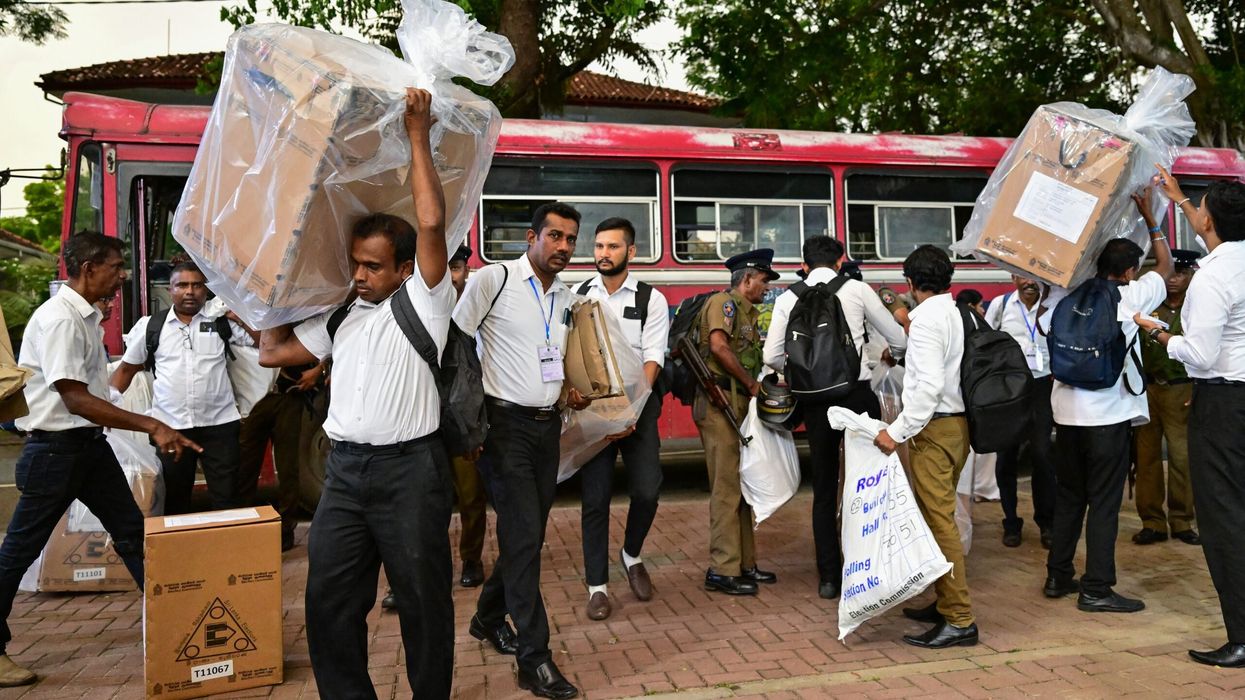SRI LANKA'S Lanka's president Anura Kumara Dissanayake expressed confidence in securing a significant victory as polls closed for Thursday’s snap legislative elections.
Dissanayake, who assumed the presidency in September with a commitment to fight corruption and recover misappropriated assets, now aims to solidify his position following Sri Lanka’s severe economic crisis two years ago, which saw former president Gotabaya Rajapaksa ousted.
On Thursday, the 55-year-old president indicated he anticipated "a strong majority" in parliament to continue his agenda.
“We believe this election will be a defining moment for Sri Lanka,” Dissanayake told reporters after casting his vote in the capital.
“At this election, the NPP expects a mandate for a very strong majority in parliament,” he added, referring to the National People's Power coalition led by his party, the People’s Liberation Front (JVP).
Police reported that the nine-hour voting process was free of violent incidents, a contrast to previous elections, though three election workers, including a police constable, died due to illness while on duty.
Turnout figures were not yet available, though election officials noted participation appeared lower than in the presidential election, where nearly 80 percent of eligible voters cast ballots.
“I hope for a government that serves the people,” said 70-year-old pensioner Milton Gankandage, one of the first to vote in Colombo’s Wellawatte district. “Previous leaders deceived us; we need new rulers to develop the country.”
Dissanayake has been a member of parliament for nearly 25 years and briefly served as agriculture minister. His NPP coalition held just three seats in the previous parliament. He rose to the presidency by distancing himself from establishment politicians blamed for Sri Lanka’s economic crisis in 2022.
Dissanayake’s JVP party, which led two major insurrections in the past, resulting in thousands of deaths, has since transformed, with this election among the most peaceful in the country’s history.
University lecturer Sivalogadasan remarked that while changes have begun, fulfilling Dissanayake’s promises will take time. “Some things have started to change... but you can't expect immediate results,” the 52-year-old said.
'Investor confidence'
Nearly 8,900 candidates contested for 225 parliamentary seats.
Despite previously suggesting a potential renegotiation of a controversial $2.9 billion International Monetary Fund (IMF) bailout, Dissanayake has maintained the agreement. The Ceylon Chamber of Commerce, Sri Lanka's main private sector lobby, has expressed support for his reform agenda.
“Continuing reforms... could boost both investor confidence and fiscal discipline, laying the groundwork for sustainable growth,” said Bhuwanekabahu Perera, CCC secretary.
An IMF delegation is scheduled to arrive in Colombo to review Sri Lanka’s progress ahead of the next $330 million tranche of the bailout loan.
Opposition leader Sajith Premadasa, who advocated for a coalition government, pledged at his final campaign rally to “press Dissanayake to fulfil promised tax cuts.”
'Foregone conclusion'
Poll monitors and analysts noted that Thursday's election generated less excitement and violence than past elections.
“The opposition is dead,” said political analyst Kusal Perera. “The outcome of this election is a foregone conclusion.”
The outgoing parliament was primarily controlled by the party of former leaders Mahinda and Gotabaya Rajapaksa. Neither Rajapaksa brother is running, though Mahinda's son Namal, a former sports minister, is contesting.
Private sector employee Damayantha Perera, 49, said he was aware the election would likely favour Dissanayake’s NPP but voted for a party that was not predicted to win. “I voted according to my conscience,” he said.
(With inputs from AFP)




